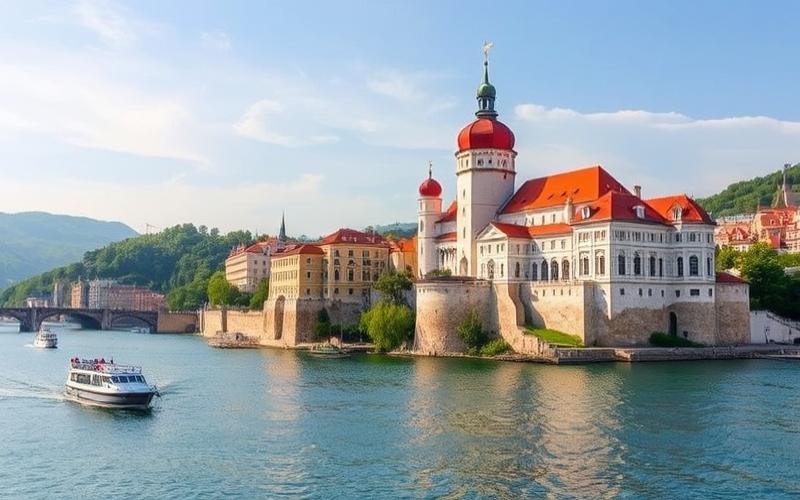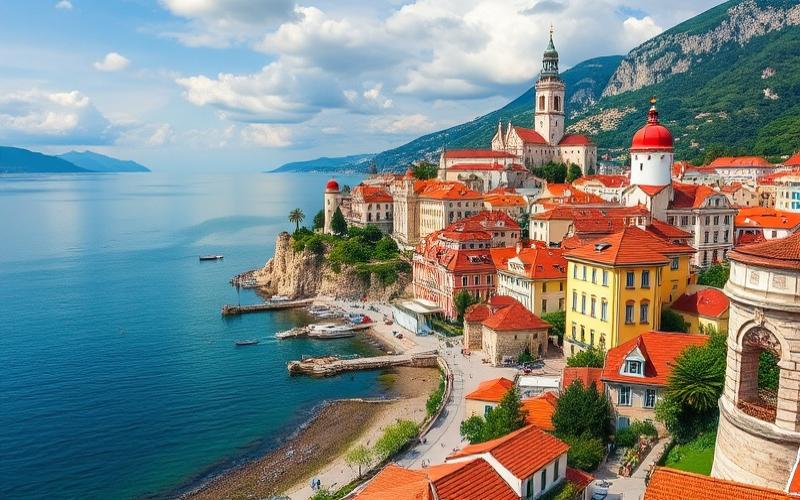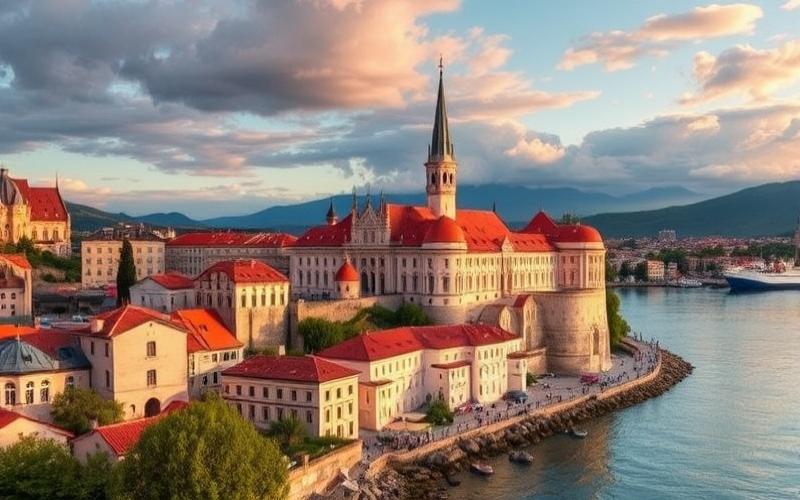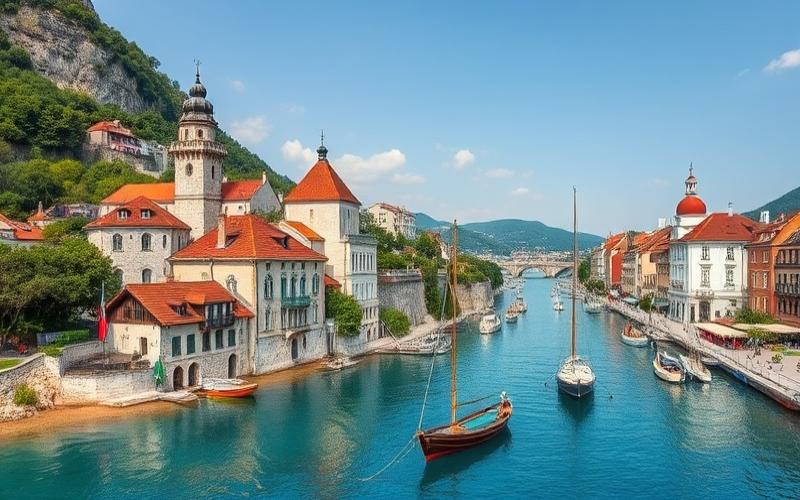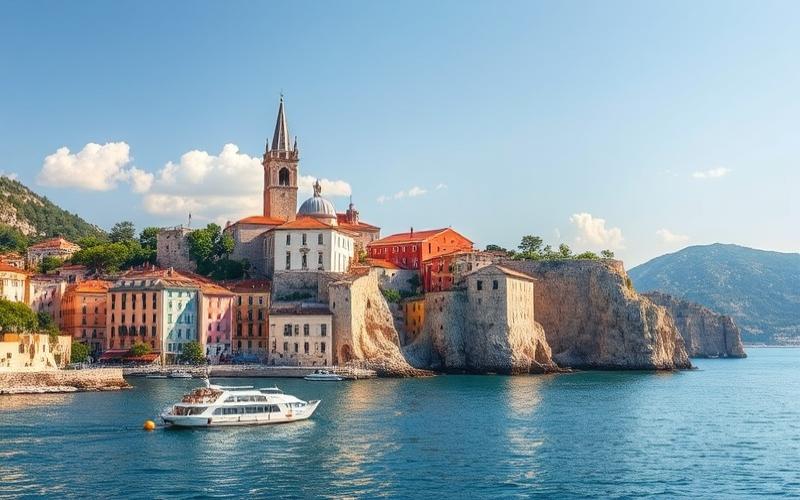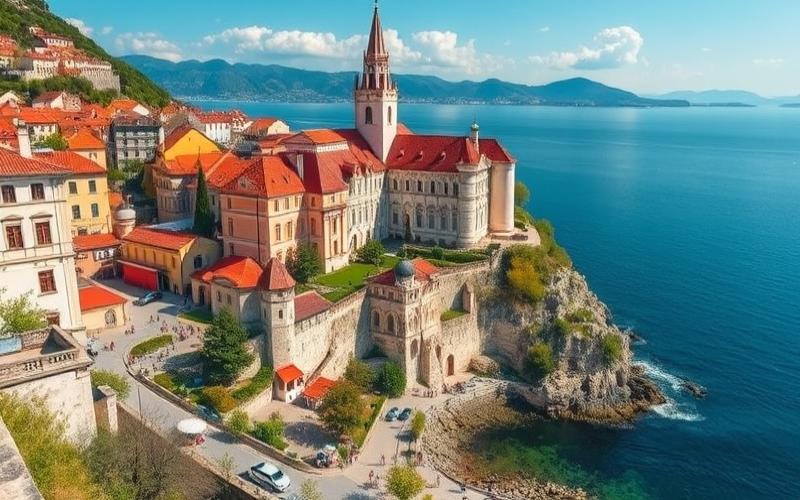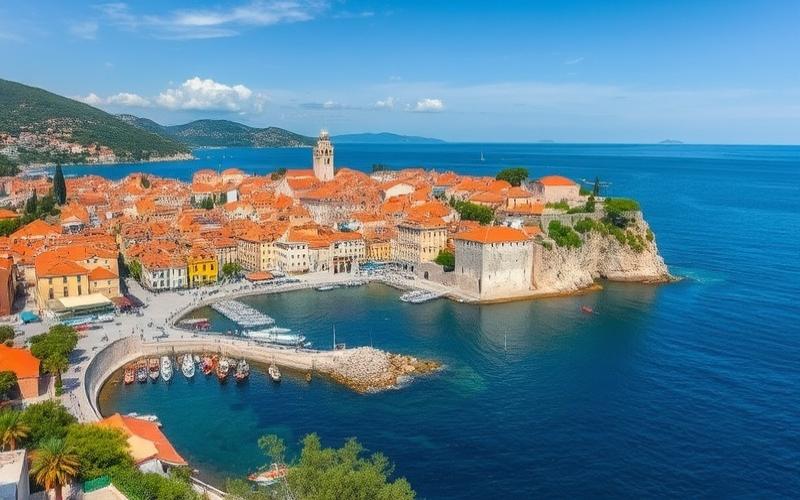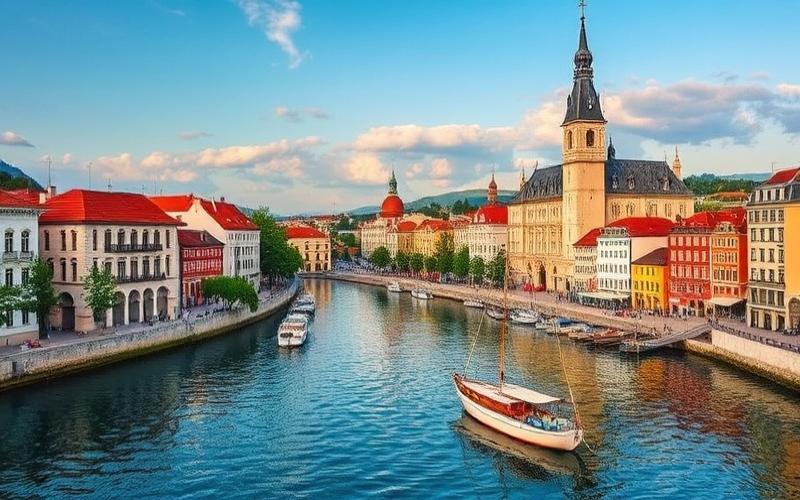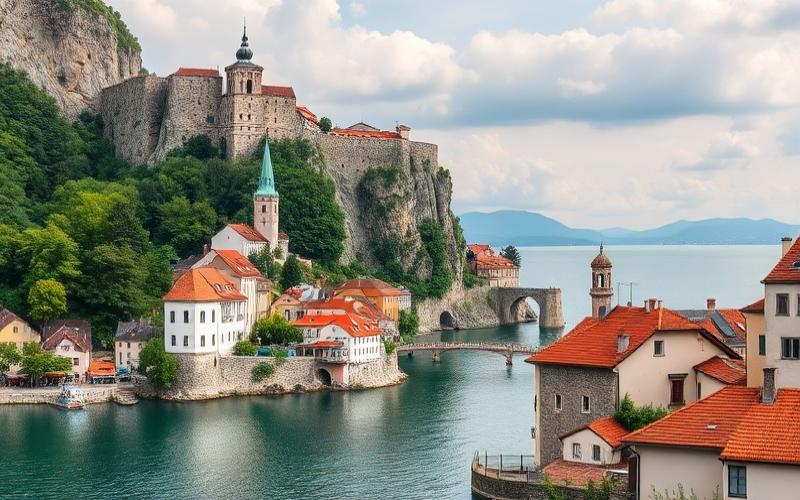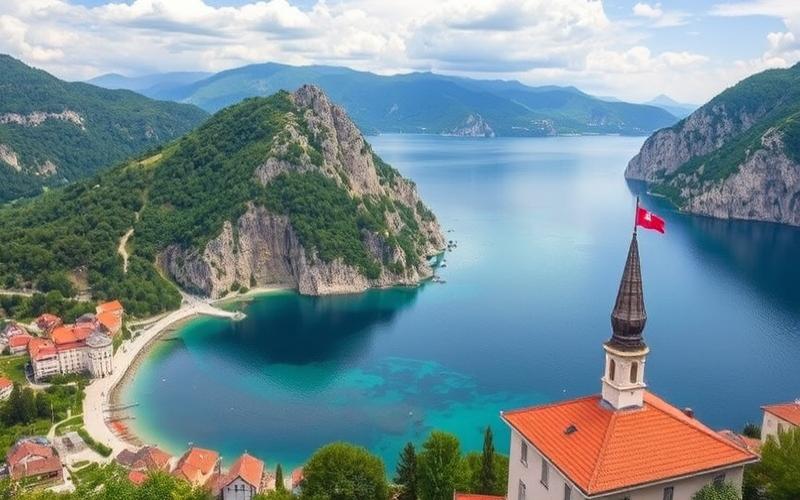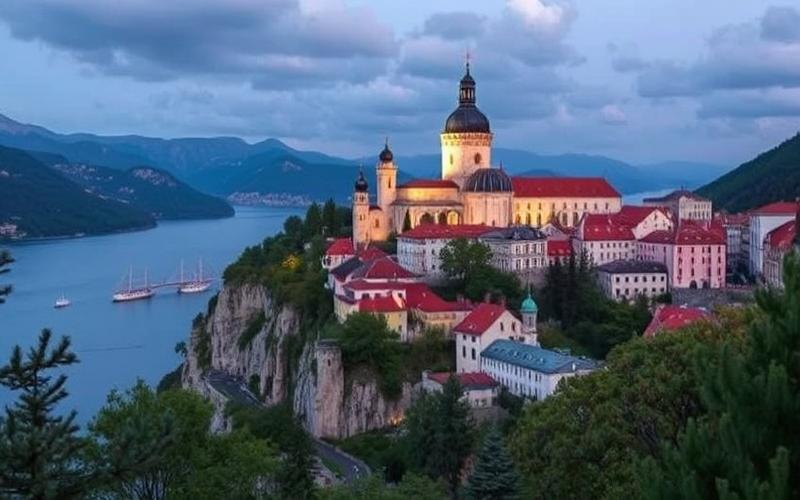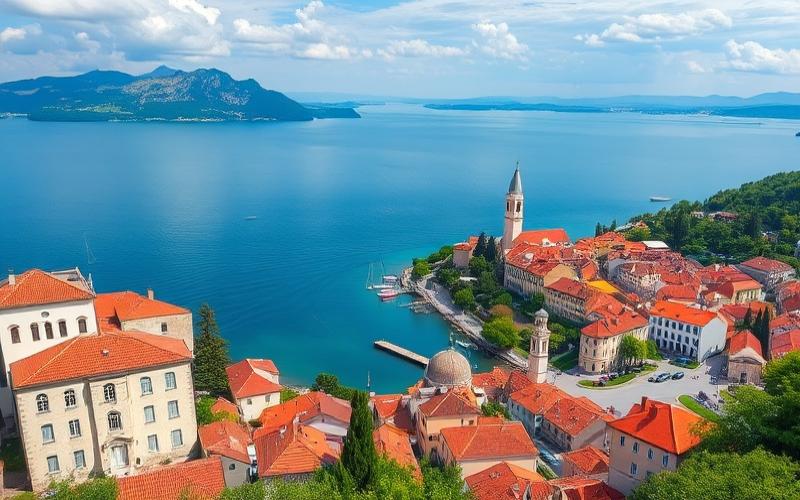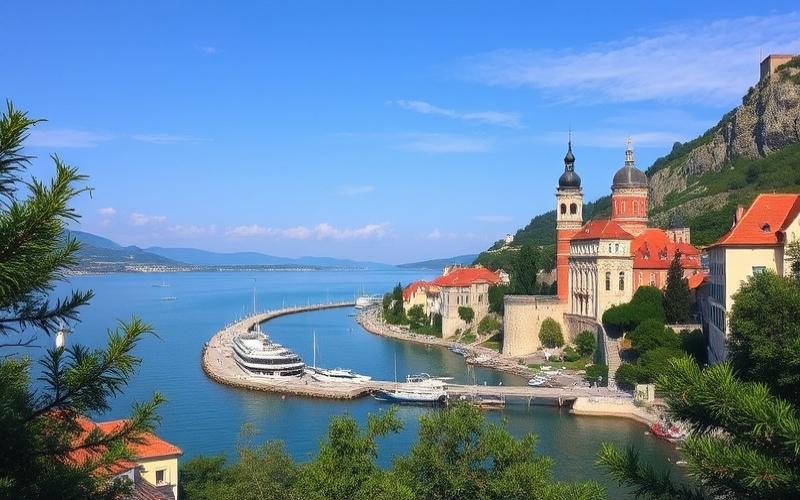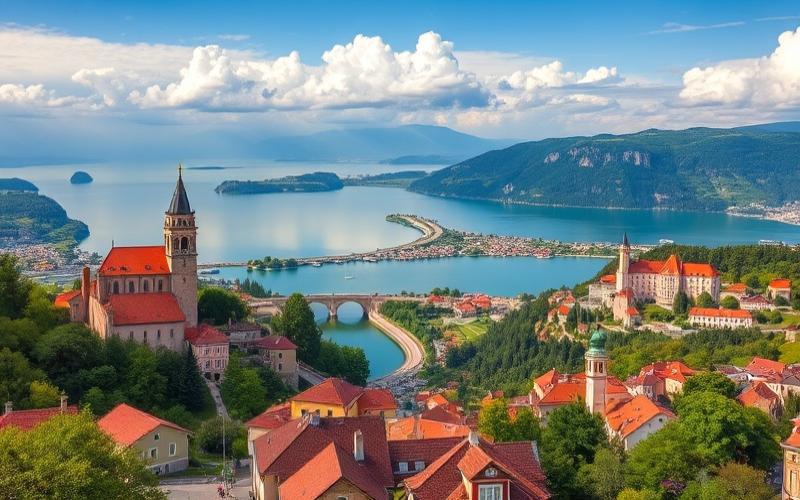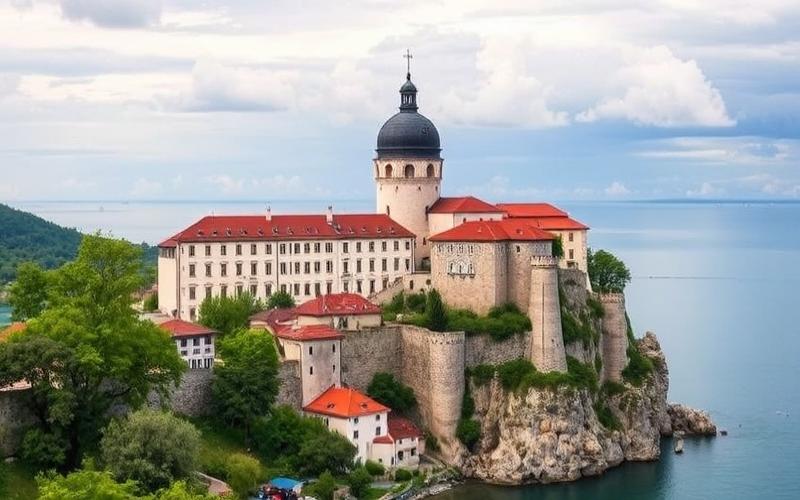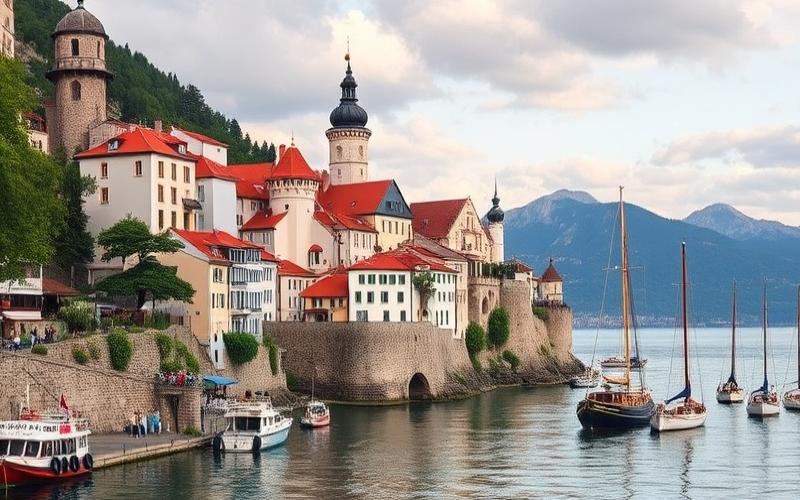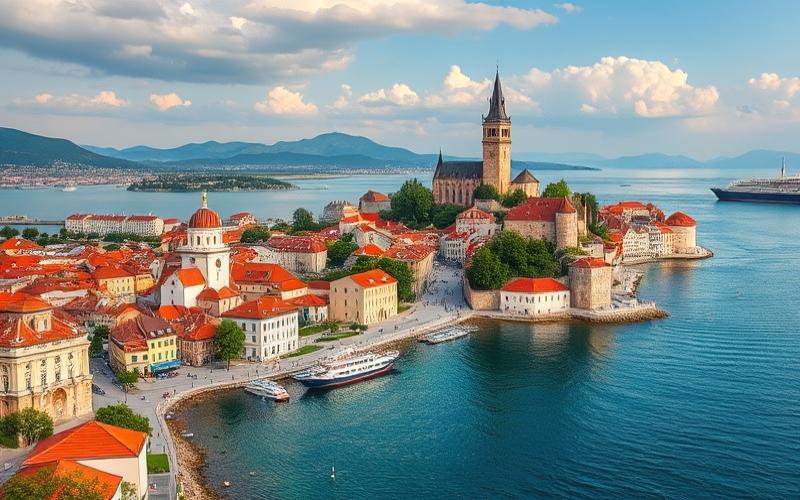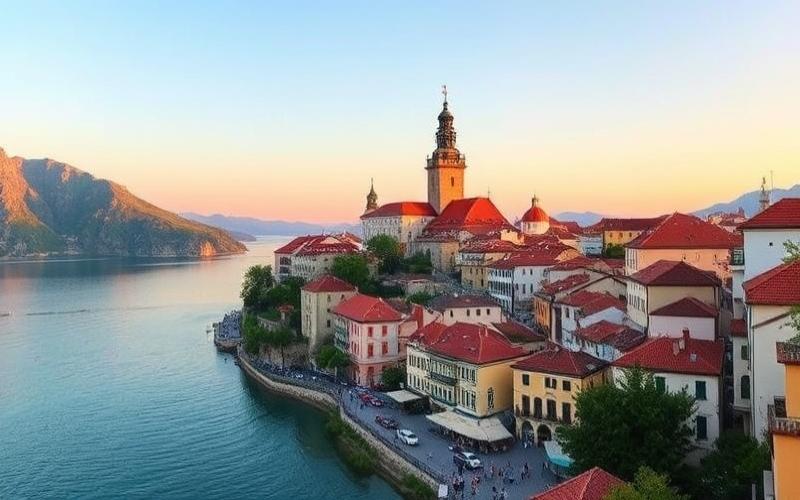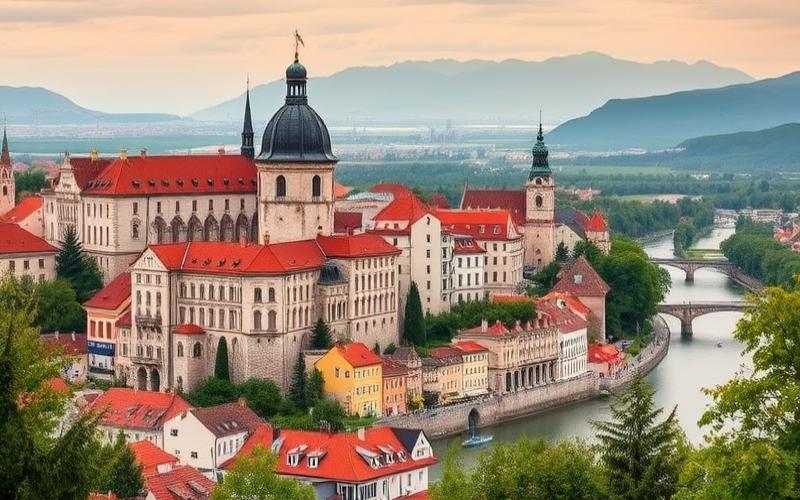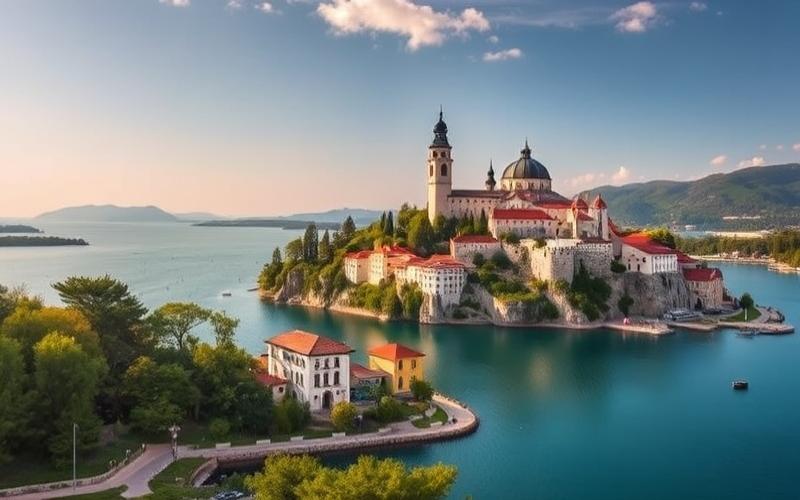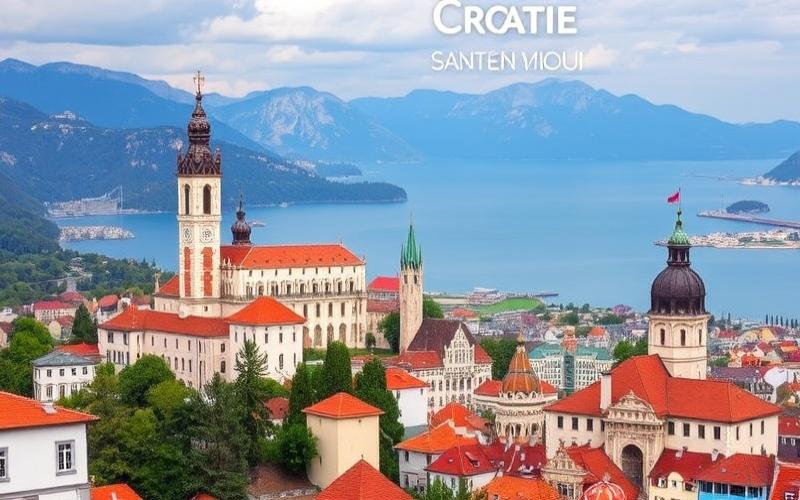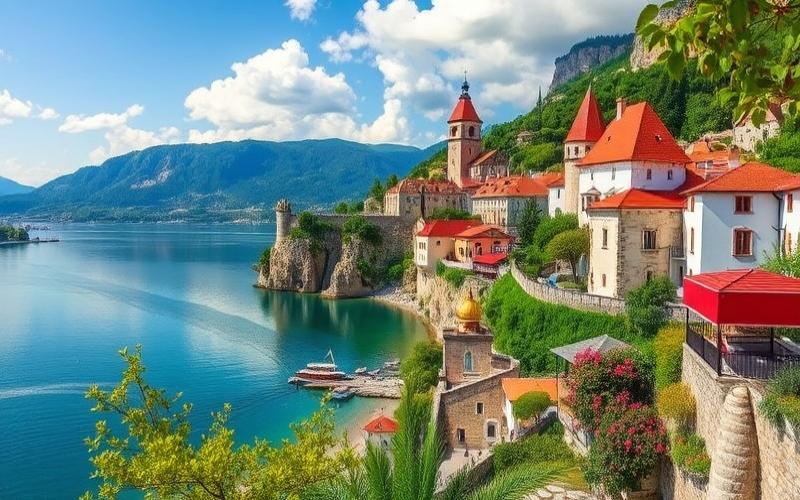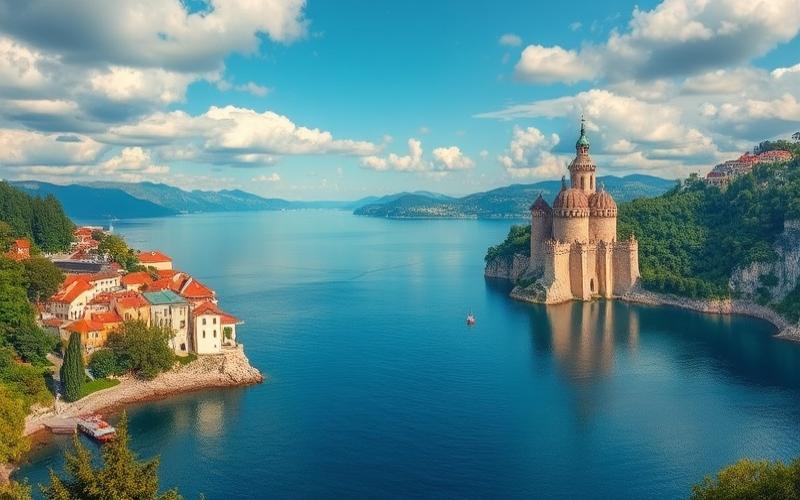
 Published on and written by Cyril Jarnias
Published on and written by Cyril Jarnias
Nestled along the Adriatic coast with its crystal-clear waters and historic towns, Croatia has become an attractive choice for expatriates seeking an exceptional quality of life.
In this guide, we’ll explore the many facets of life in Croatia, from choosing the right place to live to the essential administrative steps for a successful relocation.
Whether you’re drawn to the cobblestone streets of Dubrovnik, the vibrant energy of Zagreb, or the rustic charm of Dalmatian villages, each region offers a unique experience and a lifestyle that blends tradition with modernity.
Ideal for adventurers and families alike, this Mediterranean country stands out for its warm hospitality, delicious cuisine, and a cost of living often more affordable than other European destinations.
Follow along to discover how to make your dream of a new life in this idyllic setting a reality.
Preparing Your Move to Croatia
Required Documents
- Valid passport for the entire duration of your stay.
- Visa: EU/EEA/Swiss nationals do not need a visa for stays under 90 days. For longer stays, apply for a temporary residence permit (“privremeni boravak”). Non-Europeans must obtain a long-stay visa or residence permit before departure.
- Proof of financial means and health insurance.
- Croatian residential address (housing certificate or lease agreement).
- Employment verification or proof of enrollment for students.
- Specific documents depending on your situation: birth certificate, marriage certificate, etc.
Housing
Remote housing searches are common, especially in major cities like Zagreb, Split, and Dubrovnik, where demand among expatriates is high.
Popular neighborhoods in Zagreb: Maksimir, Trnje, Gornji Grad, Jarun.
Reliable real estate platforms: Njuškalo, Crozilla, Oglasnik, Rentlio.
Schedule virtual tours and request recent photos.
Carefully review rental terms (security deposit, lease duration).
Consider using local real estate agencies.
Health Insurance
Croatia has a mandatory public insurance system (HZZO) for residents.
EU expatriates can use the European Health Insurance Card (EHIC) for emergency care, but international health insurance is highly recommended for access to private care, covering repatriation, and avoiding wait times.
Options: first-euro insurance (April, Allianz, Indigo Expat, CFE), CFE supplements, or local insurance.
Non-Europeans must provide proof of insurance covering medical care and repatriation to obtain their residence permit.
Transportation and Moving
Prepare a detailed inventory of your belongings for customs.
Reputable international moving companies: AGS, Crown Relocations, Santa Fe Relocation, Grospiron International.
Options include moving by truck, sea container, or air freight depending on volume and budget.
Variable costs: €1,500 to €5,000 depending on distance, volume, and transport mode.
Consider purchasing transport insurance to cover your belongings during transit.
Language Learning
Speaking Croatian facilitates integration, even though English is common in major cities and the tourism sector.
Free resources: Duolingo, Memrise, YouTube (channels dedicated to Croatian).
Online courses: Croaticum (University of Zagreb), Babbel, Preply.
It’s advisable to take a few classes before departure to master the basics (polite expressions, everyday situations).
Opening a Bank Account
Required documents: passport, residence permit or proof of registration, proof of address (lease agreement, utility bill).
Main banks to consider: Zagrebačka banka, PBZ (Privredna banka Zagreb), Erste Bank, OTP Bank.
Option to open an account online or in person, often with a prior appointment.
Expect account maintenance and bank card fees.
Networking and Expatriate Community
Join dedicated forums and Facebook groups (“Expats in Croatia,” “Français en Croatie”).
Participate in MeetUp events, Internations, or language exchange evenings.
Contact expatriate associations or chambers of commerce (French, German, Italian).
Building a network helps with integration, finding practical advice, and professional opportunities.
Cost of Living
| Expense Category | Monthly Price Range (in €) |
|---|---|
| Housing (1 bedroom, city center) | 450 – 800 |
| Food | 180 – 300 |
| Transportation | 40 – 60 (monthly pass) |
| Entertainment | 50 – 120 |
| Internet | 25 – 35 |
The cost of living in Croatia is lower than in Western Europe but varies by city.
Local products are affordable, while imports are more expensive.
Social life (cafés, restaurants) is accessible, especially outside highly touristic areas.
To prepare for your move smoothly, consult official websites (embassies, HZZO, real estate platforms) and connect with the local expatriate community.
Good to Know:
For a smooth move to Croatia, ensure you have a valid passport, international health insurance, and explore platforms like Njuškalo for housing. Don’t forget to take some Croatian lessons before your departure and join expatriate forums to integrate well.
Visa and Residence Permit: Everything You Need to Know
Visa and Residence Permit for Croatia: Everything You Need to Know
Types of Visas Available for Expatriates
- Schengen Visa (Type C) / Short-Stay Visa: Allows stays in Croatia for up to 90 days within a 180-day period for tourism, business, transit, family visits, or private purposes.
- Long-Stay Visa (Type D): Required for stays exceeding 90 days, particularly for work, studies, family reunification, or as a digital nomad.
- Work Visa: For individuals employed by a Croatian company or entrepreneurs looking to start a business in Croatia.
- Digital Nomad Visa: For remote workers who remain in Croatia while working for a foreign company.
- Student Visa: For individuals enrolled in a Croatian educational institution.
Visa Application Procedure
- Determine the appropriate visa type for your situation (tourism, work, studies, etc.).
- Choose the competent authority: Croatian embassy or consulate in your home country.
- Gather the required documents:
- Valid passport (at least 3 months beyond the intended stay)
- ID photo
- Proof of accommodation (booking, lease, invitation letter)
- Proof of financial means (bank statements from the last 3-6 months)
- Travel or health insurance covering at least €30,000
- Motivation letter or employment contract / acceptance letter for studies
- Clean criminal record for certain visas
- Complete the application form (available on the embassy or consulate website)
- Pay the visa fees:
- Approximately €80 for adults (Schengen, Type C)
- €40 for children aged 6 to 12
- Schedule an appointment and submit the application in person
- Interview at the embassy or consulate (if required)
- Processing times:
- Short-stay visa: about 15 business days
- Long-stay / work / student visa: generally 4 to 8 weeks
Specific Documents by Visa Type
| Visa Type | Additional Required Documents | Approximate Processing Time | Main Fees |
|---|---|---|---|
| Work | Employment contract, job offer, criminal record | 6 weeks | €80 |
| Student | Acceptance letter, proof of funding | 4-8 weeks | €80 |
| Digital Nomad | Proof of stable income, contract outside Croatia | 4-8 weeks | €80 |
| Temporary Stay | Reason for stay, proof of resources, accommodation | 4-8 weeks | €80 |
Residence Permit: Conditions and Distinctions
- Temporary Permit:
- Granted for stays longer than 90 days (work, studies, family reunification, digital nomadism, etc.)
- Duration: 1 year, renewable
- Rights: Access to employment (depending on the reason), enrollment in Croatian social security, possibility of family reunification
- Obligations: Register address with the police within 3 days, maintain health insurance, renew before expiration
- Permanent Permit:
- Granted after 5 years of continuous and legal residence in Croatia
- Expanded rights: Unrestricted access to the job market, social rights close to those of citizens, possibility of unlimited residence
- Obligations: Maintain a fixed residence, comply with Croatian laws
| Permit Type | Validity Period | Access Conditions | Main Rights | Key Obligations |
|---|---|---|---|---|
| Temporary | 1 year renewable | Reason for stay, resources, housing | Work, studies, social security | Registration, renewal |
| Permanent | Unlimited (card renewal every 10 years) | 5 years of legal continuous residence, integration | Social rights, free employment | Fixed residence, law compliance |
Competent Authorities for Applications
- Croatian embassies and consulates: For initial visa applications from abroad
- Local Croatian police: For address registration and on-site residence permit applications/renewals
- Croatian Ministry of the Interior: Central authority for residence and permit decisions
Practical Tips to Facilitate the Administrative Process
- Prepare all original documents and certified copies.
- Translate and legalize foreign documents through a sworn translator if necessary.
- Schedule appointments in advance to avoid delays, especially during peak periods.
- Regularly check your application status online or with the competent authority.
- Register with the local police promptly upon arrival in Croatia (legal deadline of 3 days).
- Keep copies of all documents and receipts.
Key Takeaway: Thorough preparation of your file, anticipating processing times, and adhering to local procedures greatly facilitate expatriates’ relocation to Croatia.
Good to Know:
Visa and residence permit applications in Croatia are submitted to the MUP (Ministry of the Interior); providing certified translations of required documents can speed up processing. Temporary permits require annual renewal, while permanent permits are available after five years of continuous residence.
Succeeding in Your Integration into the Croatian Community
Social integration is a key step for a successful expatriation in Croatia, as it not only affects daily well-being but also the ability to build lasting relationships and embrace a new culture.
Main Croatian Cultural Customs to Respect
- Greetings are very important: a firm handshake or three kisses (depending on closeness) show respect and friendliness.
- Family gatherings are central to Croatian society. Being invited to a family meal is an honor and a privileged moment to immerse yourself in local traditions.
- Punctuality is appreciated, especially for professional or association appointments.
Learning Croatian, a Valuable Asset
Even though many Croatians speak English, mastering some basics of Croatian greatly facilitates communication and shows sincere respect for the local culture.
A few simple words or phrases are often well-received and can open many doors, both professionally and personally.
Local Practices at Social Events
- Cafés play a major social role: Croatians regularly meet over coffee to chat, share news, and strengthen social bonds.
- Participating in traditional festivals (like the Feast of St. Blaise in Dubrovnik or summer festivals) allows you to discover the richness of folklore and be welcomed as a full member of the community.
Tips for Meeting People and Integrating
- Joining local groups or associations (sports clubs, cultural workshops, francophone associations) is an excellent way to meet people who share your interests.
- Participating in language workshops, intercultural evenings, or professional events facilitates integration and expands your social circle.
Usefulness of Local Social Networks and Online Platforms
- Facebook groups like “Expats in Zagreb” or “Expat Croatia” allow you to exchange practical advice, ask questions about daily life, and find events for expatriates.
- Platforms like InterNations or the Zagreb International Club regularly organize meetups and activities for the international community.
| Event Type | Main Objective | Typical Organizer |
|---|---|---|
| Language Exchanges | Practice Croatian/English/French | Facebook Groups, InterNations |
| Cultural Meetings | Discover heritage/local culture | Local Associations |
| Professional Gatherings | Networking and job opportunities | FBOA, Digital Nomads Split |
| Thematic Workshops | Specific support and mutual aid | Empowered Women, private workshops |
| Meetup Cafés | General socializing | Facebook/InterNations Communities |
Practical Tips and Expatriate Testimonials
“Upon arriving in Zagreb, I attended InterNations monthly meetups. This allowed me to quickly build a circle of friends and get advice about my new city.”
“Thanks to cooking workshops at the Alliance Française in Split, I was able to share my culture and meet Croatians curious about French know-how.”
“Expatriate groups on Facebook helped me solve administrative issues and feel less isolated during my first months.”
To Succeed in Your Integration in Croatia:
- Learn some Croatian basics to facilitate communication.
- Respect local customs, especially during greetings and meals.
- Actively participate in local social life: cafés, festivals, cultural events.
- Rely on expatriate networks and associations for guidance and connections.
- Use social media to find advice, contacts, and meeting opportunities.
Getting involved, staying open-minded, and being curious are the keys to making Croatia a warm and welcoming new home.
Good to Know:
Mastering Croatian greetings, often accompanied by a warm handshake, and attending family feasts are essential practices; joining groups like “Foreigners in Croatia” on Facebook can also facilitate exchanges. Learning some Croatian basics helps considerably, as testified by Lisa, an expatriate who discovered the art of “klapa,” traditional singing, through her language classes.
Disclaimer: The information provided on this website is for informational purposes only and does not constitute financial, legal, or professional advice. We encourage you to consult qualified experts before making any investment, real estate, or expatriation decisions. Although we strive to maintain up-to-date and accurate information, we do not guarantee the completeness, accuracy, or timeliness of the proposed content. As investment and expatriation involve risks, we disclaim any liability for potential losses or damages arising from the use of this site. Your use of this site confirms your acceptance of these terms and your understanding of the associated risks.

